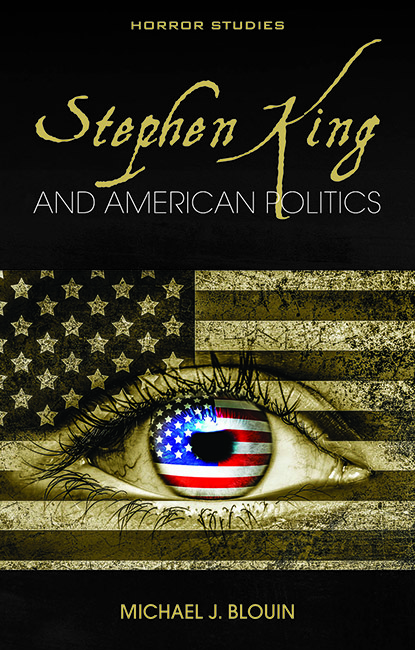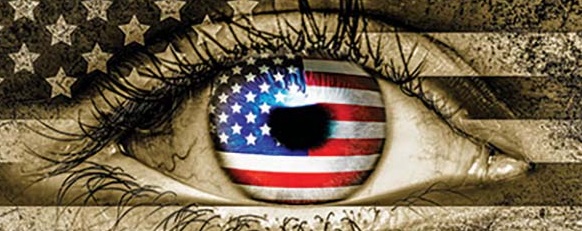Michael J. Blouin introduces his monograph, Stephen King and American Politics.

As a result of his popularity on social media, Stephen King’s political opinions have become a daily obsession. Whether getting into hot water because of his comments on race and Hollywood awards, or heatedly engaging with Senator Ted Cruz or former president Donald Trump, King perpetually dives into the political fray. But is King – contemporary America’s most popular storyteller – really a political writer?
I wrote this book to answer that question. It struck me that many of King’s novels reflect the pressing political issues of the last fifty years: the quagmire in Vietnam alongside the growth of the military-industrial apparatus (Hearts of Atlantis); America’s dependence upon foreign oil (countless King texts); wedge issues like abortion (Insomnia); U.S. isolationism (Under the Dome); and the dangers of populist politics (The Outsider). Yet King himself has repeatedly denied that his stories should be read politically; instead, he encourages his Constant Reader to forget politics while enjoying his work.
In my book, I argue that King’s denial of politics is a sign of how truly political his texts can be. That is, I read King’s claim that his fiction remains ‘anti-political’ as a symptom of the state of American politics from the late 1970s until today. Even as King’s texts outwardly reject politicians as well as political wrangling, they simply cannot repress for long the haunting presence of the political.
One of my favourite chapters in the book analyses King’s epic novel IT by highlighting a tension in the text between communitarianism and liberalism. On the one hand, King’s characters learn that they are embedded within community, as their individual fates cannot be separated from the fate of their hometown Derry. On the other hand, King’s characters insist upon free will and refuse to be imprisoned by communal demands. Indeed, readers discover signs of this ambivalence throughout King’s corpus. In this chapter, I wanted to demonstrate how exactly one could look at King’s fiction through a uniquely political lens. I hope that my book opens up new avenues for exploring King’s body of work and perhaps, in turn, novel ways for thinking about the relationship between contemporary American politics and popular culture.
Michael J. Blouin is Associate Professor of English and Humanities at Milligan University. His recent publications include Stephen King and American History (2020), co-authored with Tony Magistrale.


